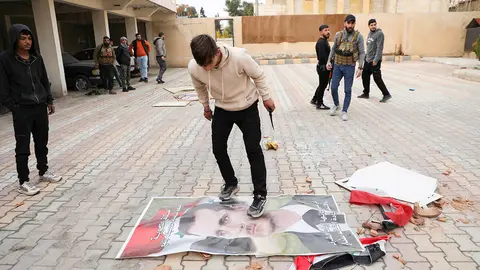Political transition in Syria: Al-Sharaa's plan and the challenges facing the new government
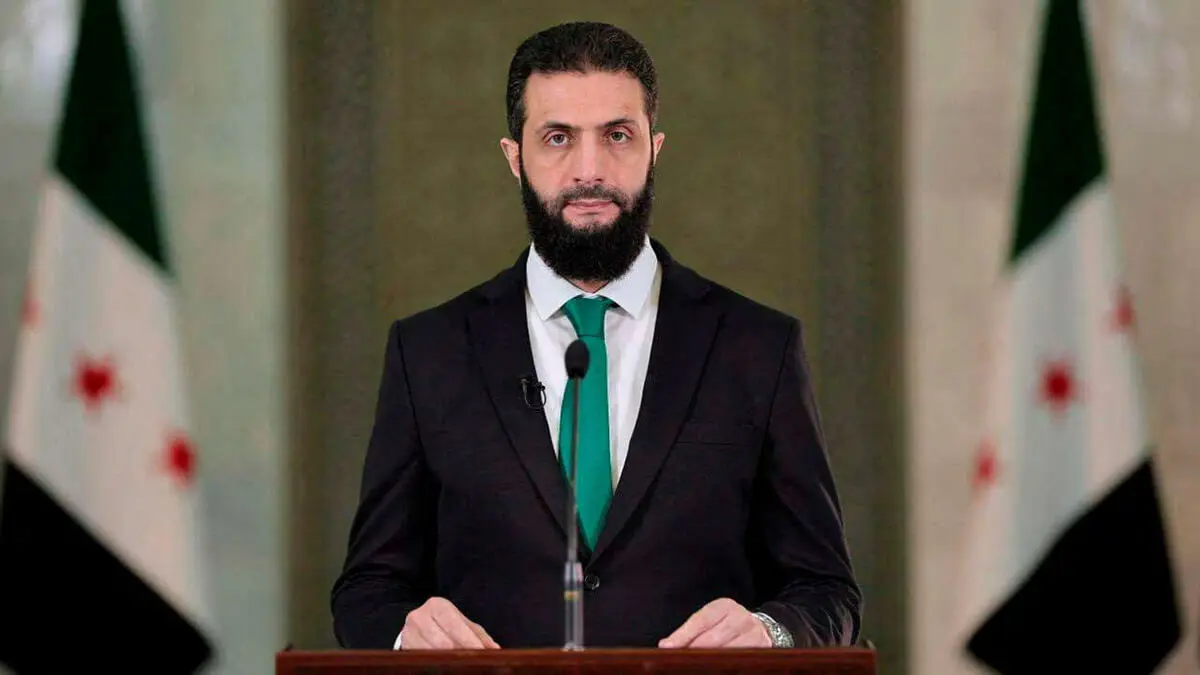
- Inclusive government and political transition
- Radical institutional reforms
- International reactions and internal challenges
- An uncertain future for Syria
Following the overthrow of Bashar Al-Assad approximately two months ago, Syria is entering a transition phase with the arrival of Ahmad al-Sharaa as interim president. In his first official speech, Al-Sharaa presented a series of measures aimed at restructuring Syrian politics and society after more than 13 years full of economic and social instability, civil wars and terrorist attacks, and diplomatic crises.
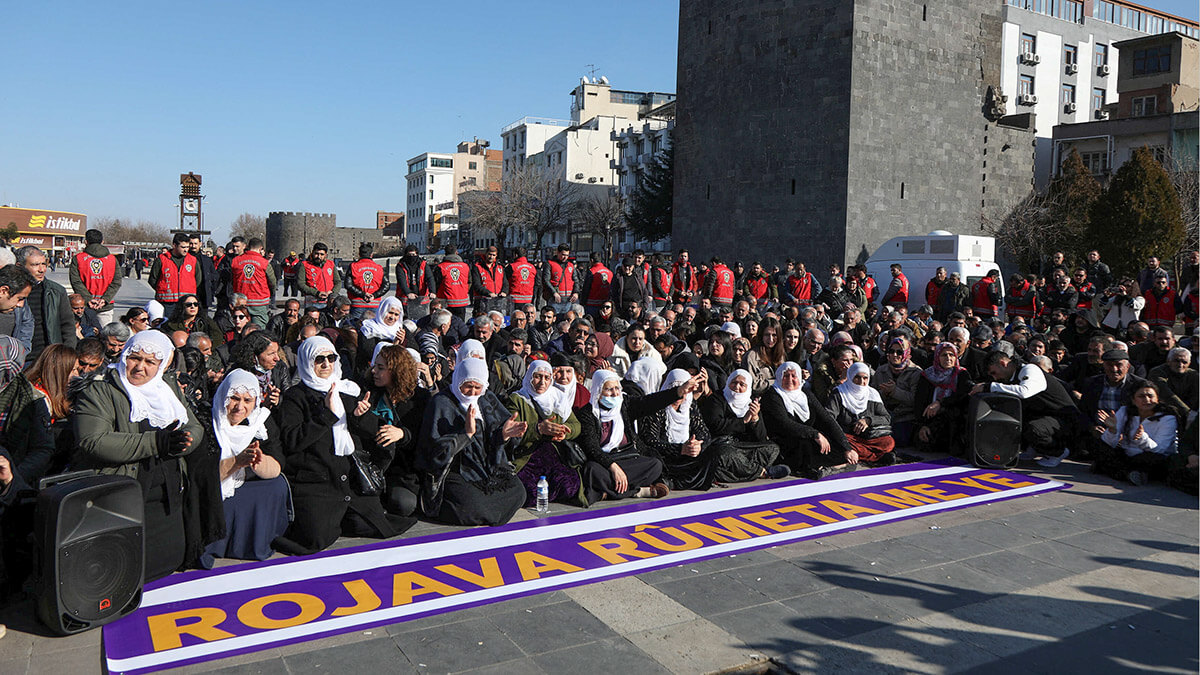
Among the most far-reaching decisions is the commitment to form a government that is inclusive, that is to say, that represents the great diversity that exists in the country; to issue a ‘constitutional declaration’, which will serve as a legal basis for this transition; and to call a referendum to define the future of the country through the National Dialogue Conference
In order to achieve all this, the interim president of Syria, Ahmad al-Sharaa, has announced a series of measures to consolidate the transition after the fall of the Assad family.
Inclusive government and political transition
As he stated in his speech, Sharaa promises the creation of a new government that is capable of representing all Syrian communities; the establishment of a ‘small legislative council’ after the dissolution of the People's Assembly.
He also announced the promotion of a new administration with the capacity to guarantee peace throughout the territory and to maintain the fight against all those terrorist factions and organisations that for more than a decade have committed crimes of all kinds against the Syrian civilian population.
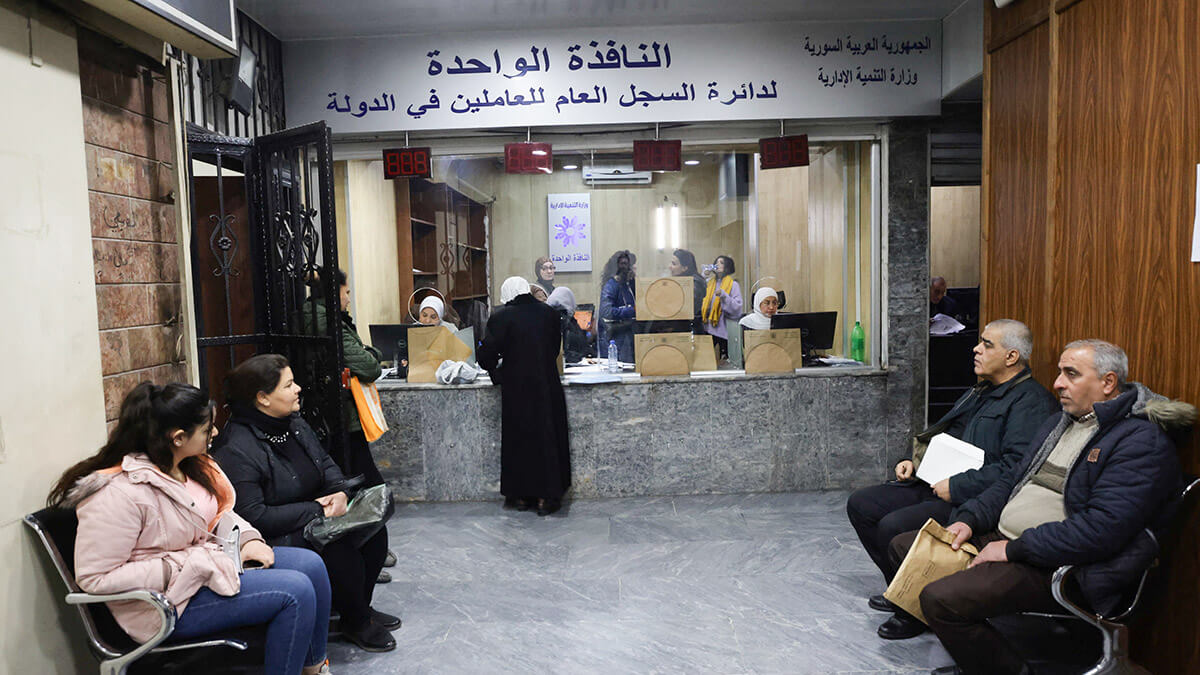
Radical institutional reforms
One of the most radical decisions of the new head of government is the dissolution of the army, the security services and all the armed groups, including Hayat Tahrir al-Sham (HTS).
In turn, in the political sphere, Sharaa proposes the elimination of the Baath Party, which has ruled Syria for decades, whom the new government considers to be solely to blame for the situation the country has been and continues to be going through. Finally, he proposed the total cancellation of the current constitution in order to be able to issue a new one where this package of measures can have a fixed and immovable legal framework.
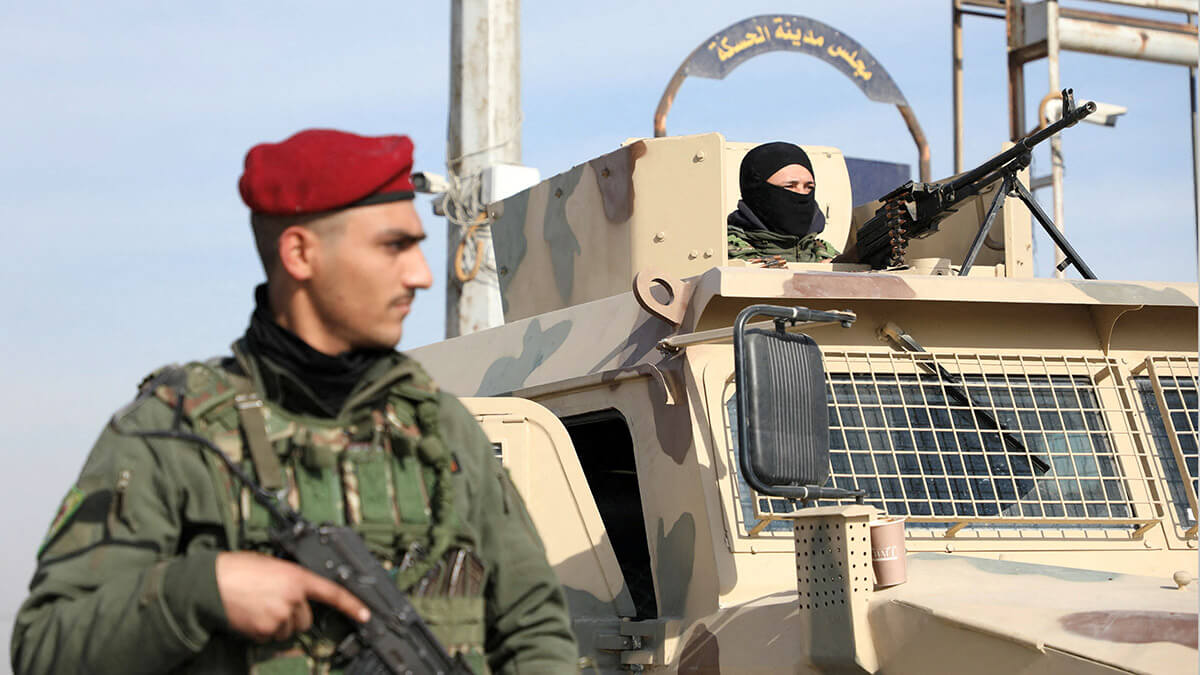
International reactions and internal challenges
The international community is following the process closely and supporting it by lifting sanctions affecting those new parties that the interim president wants to add to his new interim government.
However, the first head of state to visit Syria was the Emir of Qatar, Tamim bin Hamad Al Thani, who expressed his full support for the Syrian transition and the need to promote both political and economic stability.
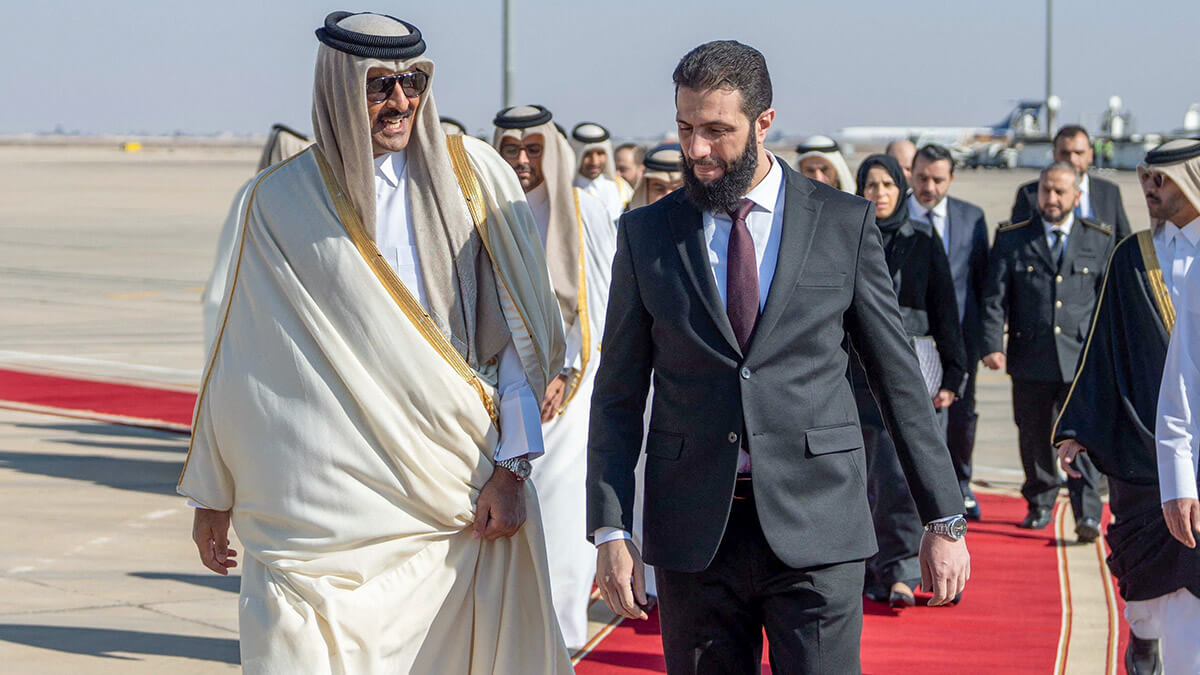
‘I thank my brother, President Ahmad al-Shara, for the warm welcome and generous hospitality he has extended to me today in Damascus. Our first meeting was characterised by a positive spirit and full of optimism for a bright future for Syria and for relations between our two brother countries. He will work hard with the international community to support the desire of the Syrian people to achieve everything for which they have sacrificed in recent years,’ the Emir of Qatar said on his X account.
An uncertain future for Syria
Although the reactions have been positive in most countries, these decisions have caused problems in Syrian communities living abroad, as has happened in Germany where there have been strong protests against the new extremist sectors that may form part of the new government.

Despite the efforts, Sharaa's decisions will generate divisions both inside and outside the country. Stability in power will once again depend on how internal affairs and negotiations are handled, how the participation of minorities is reflected in political life and, finally, what international support this new inclusive Government receives.

